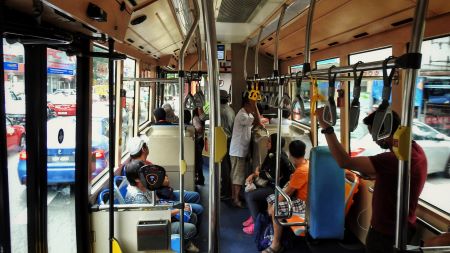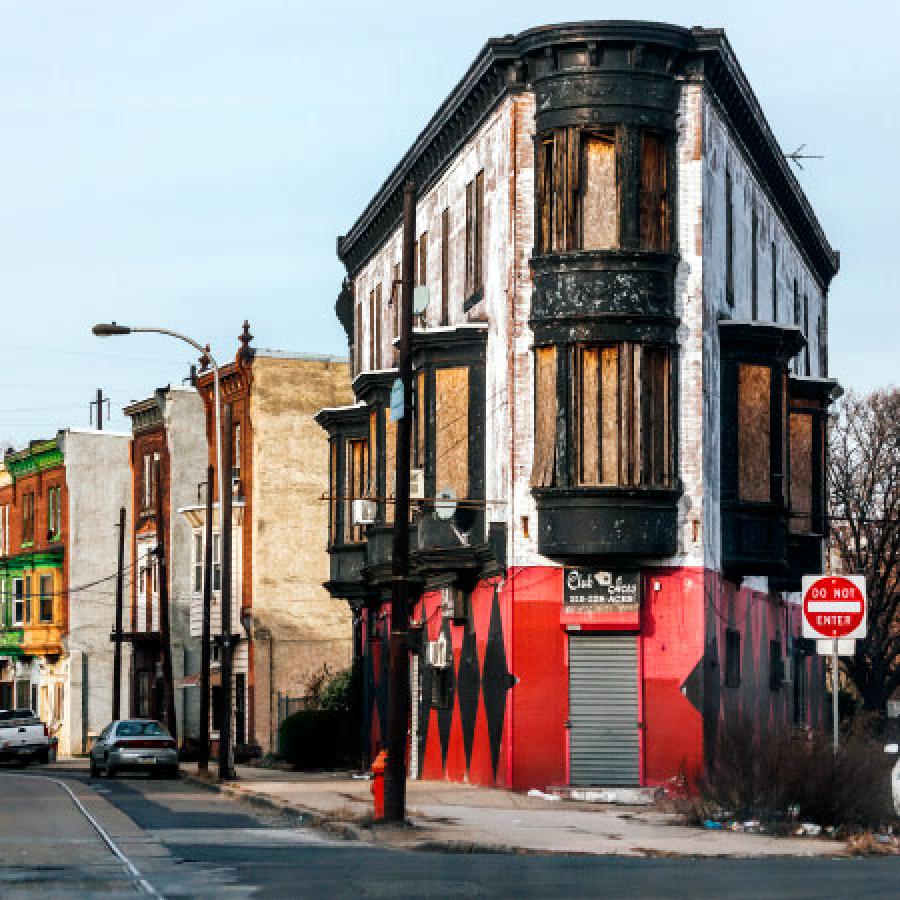Commute time: All workers should have reasonable commutes.
Insights & Analyses
- The average commute time for all workers has increased from 22 minutes in 1990 to 27 minutes in 2020.
- Asian American and Black workers experience the longest commute times in the past and in the present. In 1990, on average, Asian American workers’ and Black workers’ commute took 26 and 25 minutes respectively. In 2020, the average commute time for Asian American and Black workers increased to 30 minutes and 29 minutes respectively.
- Workers in Maryland and New York experience the longest commute times at 33 minutes while workers in South Dakota and North Dakota have the shortest commute times at 17 minutes.
- While Asian American workers have the longest average commute time overall, Black workers who commute by public transportation experience the longest commute time at 52 minutes.
- Immigrant workers have a longer average commute time than their U.S.-born counterparts for all racial and ethnic groups except for Pacific Islander.
Drivers of Inequity
People of color face longer commute times than White people because of the country's long history of racial segregation. The expropriation of land from Indigenous people along with racially discriminatory practices such as redlining and racially restrictive housing covenants have led to the economic dispossession and exclusion of communities of color. These practices also made communities of color more vulnerable to displacement due to gentrification. As urban housing prices skyrocket, people of color are increasingly pushed out of urban areas and away from their employers. As most cities in the United States lack quality public transportation, people of color increasingly face longer commute times.
Strategies
Grow an equitable economy: Policies to reduce commute times
- Build robust public transit systems including buses, bus rapid transit, and shared rides that connect low-income communities to jobs, education and training opportunities, and services.
- Expand transit options in rural communities, including van pools, shuttles, low-income car ownership programs, and bus routes.
- Coordinate housing, economic development, and transportation investments in regions to increase access and reduce emissions.
- Encourage employers to offer transportation options/subsidies and help employees live near work.
- Create transit-oriented developments (TODs) in ways that expand affordability and access for low-income residents and prevent displacement of both people and small businesses.
- Expand regional transportation networks to cover more communities, including suburbs where more low-wage workers are living.
- At the federal level, invest in public transportation infrastructure in high-need communities and provide aid to local governments to prevent cuts in transportation spending.
Strategy in Action
Clayton County joins Atlanta’s regional transit system. Largely due to the advocacy of a broad community coalition, in 2014, voters in Clayton County, Georgia, located outside of Atlanta passed a one-cent sales tax to join the Metropolitan Atlanta Rapid Transit Authority (MARTA) and reestablish public transit services. The county had cut its three bus lines in 2010 amidst a budget crisis, stranding many residents — especially those without cars — from the jobs, businesses, and services in neighboring DeKalb and Fulton Counties. The sales tax revenue has funded 13 bus lines, connecting Clayton County to the rest of the region. Since Clayton County joined MARTA, annual ridership has increased between 12 and 17 percent. MARTA is currently working on developing the Clayton County Operations and Maintenance (O&M) Facility which is expected to support 31 regional buses and create more than 700 jobs in Clayton County. Read more.
Photo: Dennis Sylvester Hurd on Flickr

Resources
- Reports: Measures Matter: Ensuring Equitable Implementation of Los Angeles County Measures M & A; Advancing Transportation Equity: Research and Practice; Those Who Need it Most: Maximizing Transit Accessibility and Removing Barriers to Employment in Areas of Concentrated Poverty; Too Far from Jobs: Spatial Mismatch and Hourly Workers
- Data: The H+T® Affordability Index; All Transit


